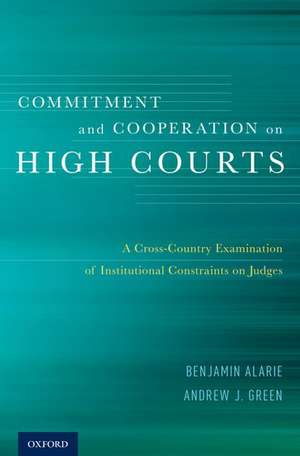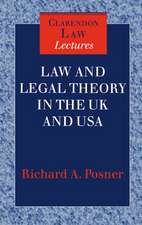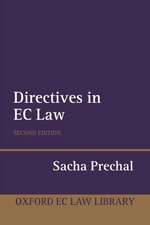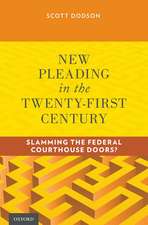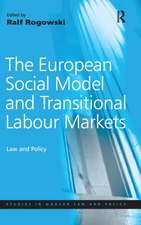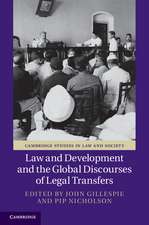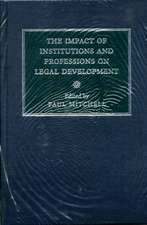Commitment and Cooperation on High Courts: A Cross-Country Examination of Institutional Constraints on Judges
Autor Benjamin Alarie, Andrew J. Greenen Limba Engleză Hardback – 14 sep 2017
Preț: 577.50 lei
Preț vechi: 826.11 lei
-30% Nou
Puncte Express: 866
Preț estimativ în valută:
110.52€ • 120.01$ • 92.83£
110.52€ • 120.01$ • 92.83£
Carte tipărită la comandă
Livrare economică 11-17 aprilie
Preluare comenzi: 021 569.72.76
Specificații
ISBN-13: 9780199397594
ISBN-10: 0199397597
Pagini: 352
Dimensiuni: 155 x 236 x 28 mm
Greutate: 0.66 kg
Editura: Oxford University Press
Colecția OUP USA
Locul publicării:New York, United States
ISBN-10: 0199397597
Pagini: 352
Dimensiuni: 155 x 236 x 28 mm
Greutate: 0.66 kg
Editura: Oxford University Press
Colecția OUP USA
Locul publicării:New York, United States
Recenzii
The law is not an abstract ideal, but something that emerges from a specific institutional context. This book builds on this key idea to analyze how specific institutional features translate into specific legal experiences across several countries with well-established and highly varied legal systems. I highly recommend this book for anyone using comparative methods to understand how the law really works.
A creative new approach to thinking about high courts and how judges do their work. Provides some valuable perspective on the U.S. Supreme Court and charts a path forward in the study of judicial politics.
A creative new approach to thinking about high courts and how judges do their work. Provides some valuable perspective on the U.S. Supreme Court and charts a path forward in the study of judicial politics.
Notă biografică
Benjamin Alarie is the Osler Chair in Business Law at the University of Toronto's Faculty of Law. He also serves as President of the Canadian Law and Economics Association. He works primarily in taxation law and judicial decision-making, and he has published in the American Business Law Journal, the British Tax Review, the Canadian Business Law Journal, the Canadian Tax Journal, and many other academic journals. He is co-author of several editions of Canadian Income Tax Law. Prior to joining the Faculty in 2004, Alarie clerked for Madam Justice Louise Arbour at the Supreme Court of Canada. He holds an MA and JD from Toronto and an LLM from Yale.Andrew J. Green is Associate Professor at the University of Toronto's Faculty of Law. His work focuses on environmental law, international trade and administrative law (how international trade rules constrain countries' ability to implement domestic environmental policy), and the role of law in fostering individuals' environmental values. He has published in the Harvard Environmental Law Review, the Virginia Environmental Law Review, the Supreme Court Law Review, and the Osgoode Hall Law Journal, among others. He holds a BA Hons from Queens, an MA and LLB from Toronto, and an LLM and JSD from Chicago.
